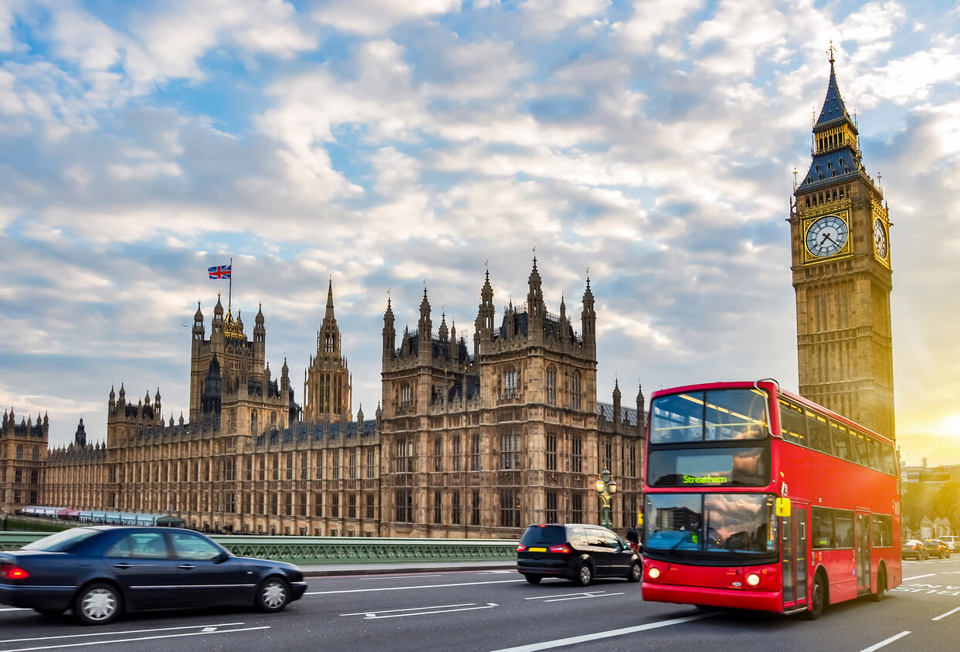Road pricing, a workplace parking levy and reducing restrictions on night-time deliveries could all help cut congestion, according to a new report.
Calling for a radical new approach, the London Assembly says the existing congestion charge is “no longer fit for purpose” and is based on “old technology”.
Instead, it wants the Mayor of London, Sadiq Khan, to implement a road pricing scheme based on charging vehicles according to when, where and how much they are driven.
“Something dramatic has to be done about the enormous congestion problem on London’s roads,” explained Caroline Pidgeon, chair of the London Assembly transport committee.
“Road pricing would be a fairer approach, as road users would pay according to how much they contribute to congestion.”
Traffic delays cost UK business billions of pounds every year. The TomTom Traffic Index found traffic across the UK’s 25 most congested cities and towns increases the time each vehicle spends on the road by an average of 127 hours a year – more than 16 working days.
Meanwhile, the overall annual cost to London from traffic delays on busy roads is £5.5 billion – a 30% increase on the £4.2bn reported in 2012/13, according to Transport for London (TfL).
Across London as a whole, the number of minutes lost to delay increased by 14% from 2012/13 to 2014/15 (see graph below).
Other congestion measures tell a similar story. The average speed on major roads has fallen significantly, from 19.9mph in 2012/13, to 17.7mph in 2015/16, a drop of 11%. Journey time reliability – the percentage of journeys completed within an allowable excess of five minutes for a standard 30-minute journey during the morning peak – has also fallen. In 2012/13, it was 89.2%, but by 2015/16 it was down to 87.8%.
“Gridlocked London needs to start moving again and tinkering here and there is not going to achieve that,” added Pidgeon. “A total rethink about who uses our roads – and how – is imperative.”
In its London Stalling report, the London Assembly’s transport committee says a new charging structure should ensure vehicles in the zone at peak times, and spending longer in the zone, face the highest charges.
However, this does not necessarily mean every driver should start paying more than they already do, but “every journey should be charged according to its true cost to London in terms of congestion, pollution and public health”, says the report.
It continues: “We recognise, of course, that some journeys made by motor vehicles can be considered necessary, and we are not looking to punish individuals or businesses for making use of London’s road network.”
The precise arrangements for road pricing, it says, will depend on a “number of factors”, and the findings of TfL’s assessments of the possible impacts of the scheme. It would also take a number of years to devise and implement.
The report’s recommendations also include: reducing restrictions on night-time deliveries; piloting a ban on personal deliveries for staff; devolving Vehicle Excise Duty (VED) to the mayor; and piloting a workplace parking levy (WPL).
Introducing WPL would mean employers offering parking spaces to employees would need to pay a fee for each space. The cost of this may be passed on to employees, to customers, or absorbed by the business.
TfL has the power to introduce a WPL anywhere in London, while individual boroughs can also do so in their areas. To date, however, the only city in the UK to have introduced a WPL is Nottingham.
The scheme was introduced in October 2011. All employers in the city offering more than 10 parking spaces must pay a fee of £375 per year, per space. Around 25,000 spaces are subject to this charge and it raised £25m in its first three years of operation, which is ring-fenced for local transport improvements.
However, given relatively few people commute to central London by car and park at their workplace, the report says that a WPL in outer London would be more appropriate.
Khan is expected to publish his transport strategy within the next few weeks.




















Login to comment
Comments
No comments have been made yet.